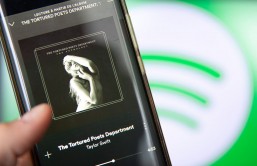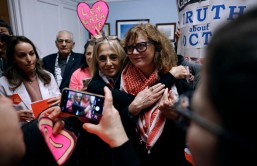"In 1951, I had a chest operation where they removed a lung -- and I was 14," James Harrison, 78, told CNN's Vital Signs. "When I came out of the operation, or a couple days after, my father was explaining what had happened. He said I had (received) 13 units (liters) of blood and my life had been saved by unknown people. He was a donor himself, so I said when I'm old enough, I'll become a blood donor."
Once Harrison donated, doctors found he had an antibody in his blood that could save lives. Doctors called him in. "In Australia, up until about 1967, there were literally thousands of babies dying each year, doctors didn't know why, and it was awful," said Jemma Falkenmire, of the Australian Red Cross Blood Service. "Women were having numerous miscarriages and babies were being born with brain damage."
The culprit was rhesus disease, often known as Rh factor. Just as blood is type A, B or O, blood types are also either positive or negative. If a surface protein is present in the blood, the person is Rh-positive. If the protein is not present, they are negative, according to The American Congress of Obstetricians and Gynecologists. The most common Rh surface antigen incompatibility is when a RH negative mother has an Rh positive fetus (the baby would have inherited the positive antigen from the father) and the baby's blood cells cross the placenta into the mother's blood stream. "After a significant exposure, sensitization occurs leading to maternal antibody production against the foreign Rh antigen," explained MedScape.
In the 1960s, Harrison worked with doctors to create an injection called Anti-D. The vaccine prevents women with rhesus-negative blood from developing antibodies during pregnancy. "Australia was one of the first countries to discover a blood donor with this antibody, so it was quite revolutionary at the time," said Falkenmire.
Between Harrison's weekly blood donations (all from his "golden" right arm) and the advent of Anti-D, more than 2 million babies have been saved - 2 million people are alive because of one man.
"Every bag of blood is precious, but James' blood is particularly extraordinary," Falkenmire said. "His blood is actually used to make a life-saving medication, given to moms whose blood is at risk of attacking their unborn babies. Every batch of Anti-D that has ever been made in Australia has come from James' blood.
"And more than 17% of women in Australia are at risk, so James has helped save a lot of lives."
Despite the numerous awards and more than 1,000 plasma donations to his credit, the "national hero" hates needles. "Never once have I watched the needle go in my arm," Harrison told CNN. "I look at the ceiling or the nurses, maybe talk to them a bit, but never once have I watched the needle go in my arm. I can't stand the sight of blood, and I can't stand pain."








